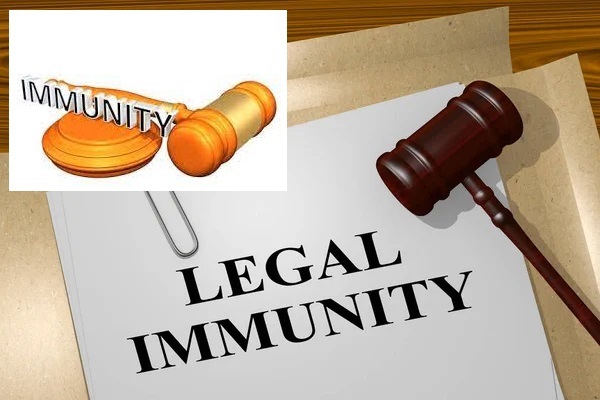Legal immunity refers to a special legal status that shields individuals or entities from prosecution, lawsuits, or legal responsibility under specific circumstances. When someone has legal immunity, they are protected from the typical legal consequences that others might face for similar actions. This protection can be granted to government officials, law enforcement officers, diplomats, or even certain entities in specific situations, depending on the jurisdiction.
One recent controversy surrounding legal immunity involves the Supreme Court’s decision to grant Donald Trump broad criminal immunity. Critics argue that this decision could allow individuals in power to break laws without facing legal repercussions.
For instance, a federal judge, Stephen S. Trott, expressed concerns about the implications of the ruling. In an opinion piece, he questioned whether the ruling could have allowed President Nixon and his operatives to evade legal consequences for illegal actions, such as the burglary at Daniel Ellsberg’s psychiatrist's office during the Watergate scandal.
Who Has Legal Immunity in the US?
In the United States, various individuals and groups are granted legal immunity under specific circumstances. Key figures who typically enjoy this protection include:- Presidents and High-Level Officials: They can have certain levels of immunity from lawsuits or criminal prosecution while in office.
- Law Enforcement Officers: Under the concept of qualified immunity, officers may be protected from lawsuits for actions performed in the line of duty unless they violate clearly established laws or constitutional rights.
- Diplomats: Diplomatic immunity is provided under international law, shielding foreign diplomats from prosecution in their host country.
- Judges: They typically have immunity from being sued for decisions they make from the bench, a concept known as judicial immunity.
Who Is Entitled to Immunity?
Immunity is typically granted to individuals who perform duties in certain high-risk or sensitive roles. Those entitled to legal immunity often include:- Government Officials: Presidents, governors, and other officials may be protected from civil and criminal liability while acting in their official capacity.
- Judges and Prosecutors: Through judicial immunity, they are shielded from lawsuits over their decisions or actions taken during legal proceedings.
- Diplomats: Diplomatic immunity protects them from prosecution under the laws of the host country.
- Law Enforcement Officers: Under qualified immunity, they are protected from lawsuits unless they violate clearly established legal rights.
Who Has Legal Immunity in India?
In India, several individuals and entities can claim legal immunity under specific circumstances:- President and Governors: Article 361 of the Indian Constitution grants the President and state governors legal immunity from criminal prosecution during their term in office. They cannot be held liable for actions taken while performing their official duties.
- Judges: Under judicial immunity, Indian judges are protected from legal actions related to their decisions in court.
- Diplomats: Diplomats in India, as in many other countries, enjoy diplomatic immunity, which protects them from legal prosecution under the country’s laws.
What is the Difference Between Immunity and Impunity?
Immunity and impunity are two distinct legal concepts, though they are often confused:- Immunity: Refers to a legal protection granted to certain individuals or entities, exempting them from prosecution or lawsuits in specific contexts. It is a lawful protection recognized by statutes or constitutional provisions. For example, diplomatic immunity allows diplomats to avoid prosecution in foreign countries for actions performed in their official capacity.
- Impunity: On the other hand, refers to a situation where individuals are not held accountable for their actions, often due to a lack of enforcement of the law. Unlike immunity, impunity implies that an individual evades justice or punishment for their wrongdoing, without any legal justification. The Supreme Court’s ruling granting Donald Trump broad criminal immunity has sparked fears that such rulings may lead to impunity, where powerful individuals evade legal consequences for their actions.
